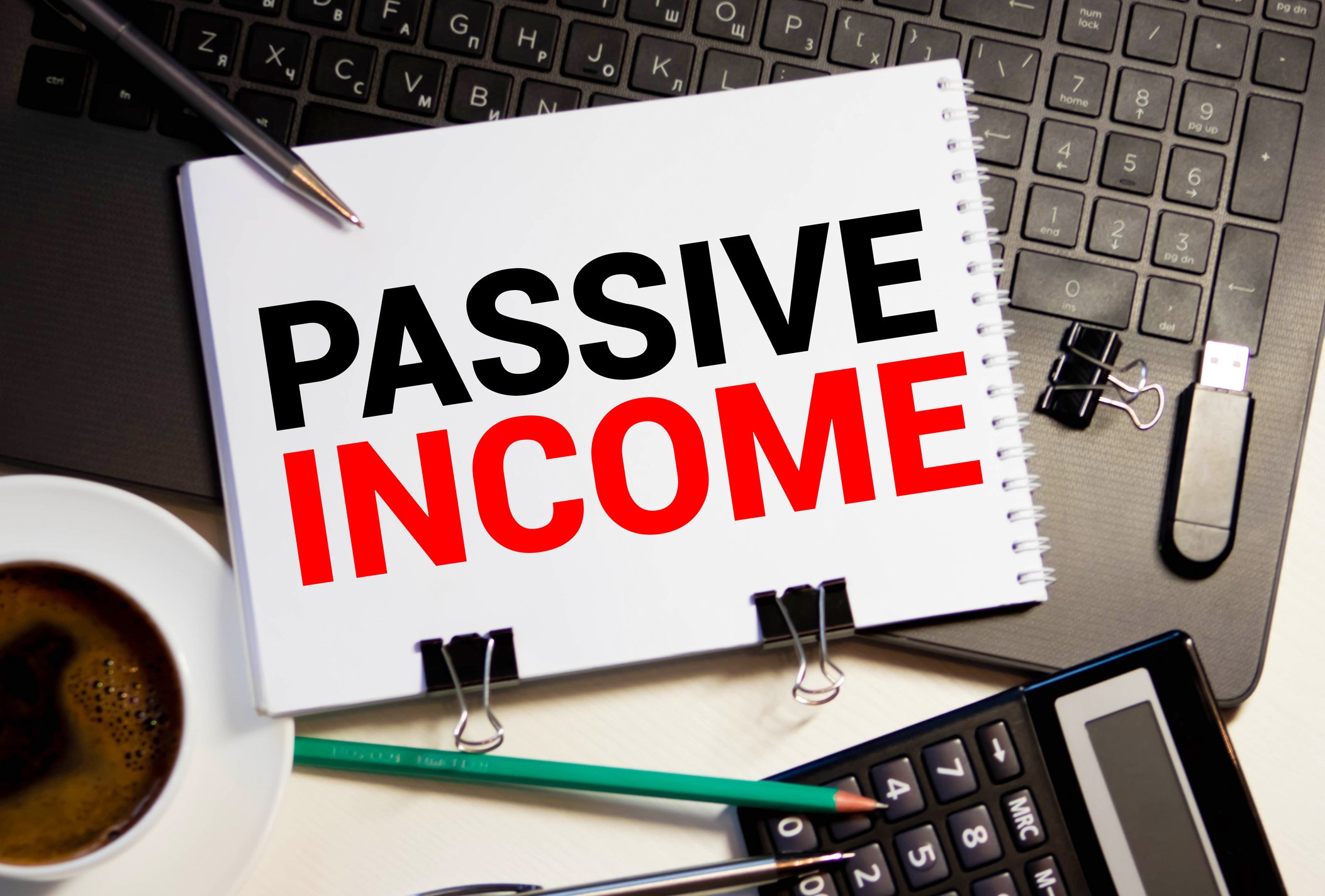On this week's episode of Motley Fool Answers, Alison Southwick, Robert Brokamp, and special guest Dayana Yochim dip into the mailbag to answer all of your credit-related questions. Ever wondered why having a credit card is important for getting a loan? How to build your credit? Where and how to access your credit score? In fact, what the heck is a credit score anyway? All these questions and more are covered on this hilarious and informative episode of Answers.
A full transcript follows the video.
This podcast was recorded on July 12, 2016.
Alison Southwick: This is Motley Fool Answers. I'm Alison Southwick and I'm joined, as always, by Robert Brokamp, personal finance expert here at The Motley Fool. And this week we have a special guest!
Robert Brokamp: Yay, guest!
Southwick: It's Dayana Yochim! You know her as an OG of Motley Fool Answers. She left us for NerdWallet, but just like Michael Corleone, we pulled her back in for today's episode which I'm calling a Credit Score Mailpalooza Extravaganza Spectacular Spectacular!
Dayana Yochim: Whoo!
Southwick: I know.
Yochim: Let me first back up. What's OG?
Southwick: Original gangster.
Yochim: Oh...
Brokamp: Really?
Yochim: ...what?
Brokamp: I didn't know that either, by the way. That doesn't surprise you.
Southwick: No, this is something that the kids have probably not been saying for about 10 years now...
Brokamp: Well, I was never a kid, so...
Southwick: This is not hip terminology.
Yochim: Since we never use the term, we can start using it now. Remember? That's the rule. It's like if you wore culottes back in the day, and culottes come back, you can't wear them again.
Southwick: Oh! I didn't know that.
Yochim: And that's not just with culottes, by the way. Bi-level haircut. Jeggings? No.
Southwick: Jeggings are always OK.
Yochim: Yes, they are.
Southwick: [Whispers] I love jeggings. So we're going to answer a bunch of your questions about credit and credit scores, and there's probably going to be a few jokes about my sensible choices in footwear. All that, and more, on this week's episode of Motley Fool Answers.
--
Southwick: Our first question comes to us from Josh. Josh writes: "Mint gives the option of checking my credit score, but I'm always scared to share my Social Security number with a nonfederal site. Do you have any thoughts on this matter? Is there truly a safe electronic way to check my credit score, or am I just being paranoid?"
Brokamp: I don't think you're being paranoid, but I don't have a solution for you. I think the bottom line is you're going to have to use your Social Security number. And I think anyone who wants to keep information private is living in a world of illusion. All their information is out there, anyhow...
Yochim: Yeah...
Brokamp: ...in all kinds of places.
Yochim: Right. I agree. Obviously, don't give it to a site that doesn't have the https:// entry before it and make sure you're going to a legitimate site. One you've heard of. Google it with the word "scam." See if anything comes up. But yes, in order for anyone to be able to pull your credit score, they need that information about you, or else anyone could use your name, impersonate you, and get your private information that way.
Southwick: But Mint is reputable.
Yochim: Yes. They're owned by Intuit. You're cool.
Southwick: The next question comes to us from Debt Freeman. Not the real name, I assume. "I'm 24, just finished school, and have never owned a credit card. Well, there's an Old Navy credit card I got to get 30% off some awesome summer clothes [that] I never used again. My friends tell me that I need to start building credit, and I tell them that I don't like to spend money I don't have. I have student loans. My parents put my name on one of their cards a while back, piggybacking off of their credit. Are these good-enough ways for me to build credit, or do I need to open a credit card and enter the big, scary world of credit card debt from which few ever return? Sincerely, Debt Freeman."
Yochim: To build credit, you don't have to spend money that you don't have. Part of building credit -- and part of managing credit successfully -- is not spending money you don't have. It's paying your bill on time all the time. So I would recommend to Mr. No Debt Freeman to yes, get a credit card in your own name, because you need to start establishing credit just for yourself. Use the card occasionally or else it goes dormant. You want the credit card company to report something to the credit reporting bureaus.
Southwick: Once a month?
Yochim: Yes, once a month is fine. Just put something small on it and pay your bill on time. Those two things, alone, are really the cornerstones of building credit. It's having it in your name and then also showing that you're a responsible user of credit. So there's no truth to the myth that you have to actually have a balance on your card, and go month to month, to build credit.
Southwick: Just buy some stuff and pay it off. And if...
Yochim: If it's an Old Navy...
Southwick: If it's Old Navy, so be it.
Brokamp: I would recommend that Mr. or Mrs. Freeman also check his credit score, as it is. He or she probably does have one, because she does have the school loans. Being on someone else's credit record will also add to your score. That may be good or bad, because she's on her parent's, and who knows how her parents are doing.
Southwick: He or she...
Brokamp: He or she. So he or she may decide that he or she doesn't want to be on her parent's record. His parents. Their parents' records. OK, we'll call this person Pat.
Southwick: No, Debt Freeman.
Yochim: Pat!
Southwick: Debt Freeman!
Brokamp: Debt, your parents may not be good with credit, so you may not want to be on their record because what they do could affect your score.
Yochim: Or, if you're a particularly vindictive child, you could also...but they are responsible for the bill. Now an authorized user versus a joint account holder are different things. An authorized user is different from being a joint cardholder. [With] joint account cardholders, things are definitely reported on both of their credit files. Also, one can't close the account out, totally, without the other's agreement.
Out of context, this is going to sound really stupid. Likely Debt is an authorized user and Debt's parents can kick him or her off the card at any time. So go ahead, establish credit in your own name. You don't have to build debt to do so. Good luck!
Southwick: The next question comes to us from Jared. Jared writes: "My longest line of credit seems to be my cellphone. In evaluating how much I can save switching to a different provider, it struck me that I would adversely impact my credit score to some degree. Can you advise how to calculate the impact of a lower score? I suspect I will be moving; thus buying a house in the next two years."
Yochim: That's a great question. MyFICO.com has a credit score simulator on its site, and you can tinker with the numbers, there, just to see. Saving money -- probably you could save significant money by switching, I'm assuming if he's asking the question -- is probably more important at this point than what it's going to do to your credit score, because whatever it does, you're buying a house in two years. It will recover before then.
Also, this is not really a traditional line of credit that's reported on a typical credit report. This is a utility bill that's sometimes not reported. They are not required to report. There are other databases where this definitely is showing up, but those probably matter a little bit less. A good question about the length of credit history. I think here go ahead and make the change, and you've got time to recover, even if it's a slight ding. And by the way, hopefully it's an account in good standing. This is going to be on your record for quite some time.
Brokamp: And definitely very smart to be thinking about this before getting a mortgage. It gives you time to get your report, fix anything that's wrong, and also do a few things to boost your score.
Southwick: The next question comes from Adam. Adam writes: "I currently have about $8,000 in credit card debt (which has zero interest for about two years) and $8,000 in student loans. I currently have enough money to pay off one of them. Which one should I pay off, and do both debts have the same effect on my credit score?"
Brokamp: First of all, depending on your income, the interest on a student loan can be tax-deductible, so that would be one thing to consider. And with any debt, you would look at the interest rates, and you want to pay off the higher interest rate first.
Southwick: But if the [interest rate on the credit card] is zero for two years...
Yochim: Yeah.
Southwick: ...it's pretty sweet.
Brokamp: You'll have to decide on those, too. And not that we ever would encourage bankruptcy or anything like that, but it is...
Southwick: Where are you going with this?
Yochim: I know where he's going. Don't listen to him, Adam.
Brokamp: I am just saying when you make these decisions, it's very difficult to get out of school loans. It's much easier to get out of credit card debt.
Yochim: For it to be forgiven in bankruptcy.
Brokamp: Right, exactly.
Yochim: By forgiven, I mean angrily.
Brokamp: And if you want to destroy your credit score, and all that stuff.
Yochim: Right. So, yes, the tax deduction is very tempting, here. My immediate reaction to this question is pay off that student loan and you are golden. The student loan debt is the biggest problem that this generation has with building their financial future. If you've got the money to pay it off, great. Also, though, before that maybe you don't pay it off entirely. Do you have an emergency fund? Having some cash in the bank helps you avoid getting into credit card debt.
Also realize that those terms on the credit card (the two years of 0% interest) -- one screw-up, one bill paid late, one time going over the credit limit can erase that perk right away.
Southwick: Oh, yeah. They say two years, no interest. If you mess up, they'll be like, "Never mind."
Yochim: Yes. You've got to be on your best behavior and the terms only apply if you are up-to-date on your credit card. It's all about fine print that is really hard to read. And the other thing is [whether that applies] only to an existing balance that you rolled over. Are all new purchases subject to higher interest rates? If so, do you have another credit card that has a lower rate, maybe, that you can just use for your everyday purchases and things like that.
Southwick: The bottom line, though, is you think he should pay off student loans. Bro, do you think you need more information to make that call?
Brokamp: No, I would say that because it is a higher-interest loan. It does depend, also, on how long he has. I mean, if he's going to pay it off very quickly, certainly just get it taken care of. But if it's going to take him four years to pay it off, then you've got to factor in that in two years that interest rate on the credit card is going to go up.
Yochim: So I would tell Adam to have a plan to pay off the credit card at least a month before.
Southwick: In two years?
Yochim: Yes. Mark your calendar. Put up signs. All of that to pay it off before the 0% interest deal ends.
Brokamp: Right.
Southwick: This comes from Lauren, and she asked us this question over Twitter. Again, you can follow us on Twitter @AnswersPodcast. She writes: "If I pay off my credit cards and stop using them, will this affect my credit? Will my score drop because I'm not using them?"
Yochim: Yes, possibly. We talked about this earlier. The credit bureaus need something to be reported in order to score you.
Southwick: Be it good or bad, they need to know something about you.
Yochim: Yes. They need to know you have a pulse and you're doing something. Paying them off, great. You're debt free. That just means that the credit utilization part of your score, which is 30%, looks great. You've got a lot of credit available to you and you have no debt.
That's fine, but going forward, they want to see a consistent use of credit. So, you want to use your card once a month. Just pay it off, but put something small on there so that it gives them some good news to report to the credit bureaus and you're looking shiny, new, responsible, and awesome.
Brokamp: I've done a little bit of reading about this. People say, "I want to build a credit score but I don't want a credit card," and there are ways to do it. But the bottom line is to get a credit score, you have to have credit. It's basically a score that says, "If you borrow money, you are going to pay it back." And that's really the best way to demonstrate that you can do it.
Yochim: Actually borrow money and pay it off.
Brokamp: Exactly.
Southwick: The next question comes to us from Meg. Meg's been married for a couple of years. She's very good with money. Her husband maybe a little less so. She writes: "We have kept our credit card accounts separate. The only credit we do share is a car loan. We bought a car last year and at the time his credit score was around 700, but mine allowed us to get a much better interest rate on our loan."
Yochim: Go, girl.
Southwick: "A couple of months after we bought the car, I checked our actual FICO score so I would have an idea of what it was before we started shopping around for mortgages, and I saw that mine had dropped from the 840s to the 770s. How can I get my score back up? Did my husband's score affect my score because we were both on the car loan? Should we try to get the mortgage just in my name to avoid this issue, or did just having the car loan (about $20,000 at the time) have a big impact on my score and will it go back up once it is paid off? What happened?"
Yochim: Number one, there is no such thing as a joint credit score. Whatever is attached to her Social Security number or her account goes there. Whatever is reported to her husband, never the two shall mix.
Southwick: So his history can't have an impact on hers.
Yochim: No. However, if they have a joint loan, and payments on that car loan are late, that affects both of their scores, because they're both responsible for paying that debt. What probably happened (she said [that drop] was a couple of months later) was there suddenly was a new line of credit on there. It was high, it was a revolving loan, and so basically the utilization (what she owed versus the available credit she had) had a gap that started to narrow. Suddenly you owe a lot more.
You want to keep all of your debts below 30% of your available credit. That's ideal. Even better is keeping it much lower than that. When you go into a loan situation like that, there is an immediate ding to your score. She should be happy. 770 is perfectly fine.
Brokamp: Yes, that's good.
Yochim: She's going to qualify.
Southwick: I can appreciate that she's thinking, "I used to be better." Talking to her husband and saying, "You did this to me! I was perfect before you came along."
Brokamp: Anything over 740 is considered pretty top of the line.
Yochim: 760 even better.
Brokamp: There you go. The cut-off used to be 720 and then the Great Recession came. They then moved it out to 740, but now you're saying it's even higher now.
Yochim: Yes, 760 is usually like, "Okay! You're doing good. Great."
Southwick: See, Meg, you're doing good.
Yochim: Yeah.
Southwick: You're doing great.
Brokamp: I will point out that she's asking about whether she should get the mortgage in her own name. If it's in her own name, it's her record unless she is in a community property state. In that case, when you're married, any loan is considered the property of both members of the couple. There are nine community property states and if you live in one, I assume you know you do.
Yochim: Something she should consider with the mortgage is that if it's only going to be in her name [and] only her income, they're going to base the amount of the loan on her income.
Southwick: And not take into account his, so it's less house.
Yochim: Right. But I think mortgage lenders will take into account other circumstances. It's not necessarily a big robot making a decision, but that is a factor to consider.
Brokamp: And there's the question of if it's her mortgage, and she's going to deduct the interest that they've filed jointly, this is very complicated.
Yochim: Oh, my God.
Southwick: Oh, my goodness.
Brokamp: You should have married someone with a better credit score.
Yochim: No, she's doing OK. She's helping him with his credit score and his finances.
Southwick: I'm sure he does stuff around the house, like move heavy things, and get jars off of high shelves. I'm sure he carries his weight, too. Or not, in which case, Meg, I'd like to introduce you to a few available men.
Yochim: Oh, you're horrible.
Southwick: I actually don't know any. Any men. I don't know any good men with good credit scores.
Brokamp: They're the worst.
Southwick: The next question comes from Sally. Sally writes: "I know that closing a credit card can be bad for your credit, especially if it's one that's been open for a long time and has a high limit (the highest of all my cards)." We're talking about a specific one now. "The issue is that this card charges $95 annually and I don't use it that much, so it seems like a waste to pay the fee. It's an airline miles card. I don't fly airlines much anymore. I have other cards with better incentives and I have adequate limits since I pay them in full each month. I do have one other card also opened in 1992. Should I take the credit reporting hit and ditch the card?"
Yochim: What's good to know is that the length of your credit history with a specific card like that is 15% of your overall FICO score, so it's not a huge amount there. More important is your payment history represents 35%, so paying your bills on time. And another 30% is how much you owe compared to how much credit you have available to you. So closing that card won't necessarily be a complete disaster.
I would go the route of calling the credit card company to see if they can switch you to another type of plan within that card. Maybe it's just something straight up with no rewards and there's no annual fee for that. The other factor, here, is that she already has another card that's been open that long, so if a card is not working for you...
Southwick: It's me, not you.
Yochim: Yes.
Southwick: If this relationship is not working for me anymore...
Yochim: Go ahead and...
Southwick: Hey, Dayana, I could really go for a NerdWallet plug right about now.
Yochim: Well, funny you should say that. If you need to shop for a card, go to NerdWallet.com where you can do so.
Southwick: You guys rate different credit cards, and reviews, and all of that. And contrast and compare.
Yochim: Yes, so you can see exactly what the deals are right now. And if you've got good credit, the sign-up bonuses are so much better than when I was a kid. They got a lot better.
Southwick: Not just a t-shirt.
Yochim: And a Frisbee.
Southwick: And a Frisbee. Here's a tough one. Are you ready?
Brokamp: Ready.
Southwick: At least I think it sounds like a tough one. This comes from Berlinda. Berlinda writes: "I had internet with Verizon, then I thought I canceled when I left. The next tenants that lived in the apartment used my name and did not pay their internet bill. I initially contacted the people who lived there after me (they were friends of a friend) and asked them to pay it. They told me they did! Now I'm trying to get a mortgage for a home and found out that Verizon recently updated this debt, so it looks like it was reported just this February and it has hurt my credit score significantly. What should I do? I could pay it, but I'm worried about the damages of it being so recent on my report." That's a pickle.
Yochim: Oof!
Brokamp: That is a pickle. That's a tough one.
Yochim: The lesson, here, is trust no one. When you move out, you cancel all of the utilities in your name. Yes, this is tough. The credit reporting bureaus allow you to put a note in your file explaining circumstances that aren't necessarily going to be spelled out in the data that's presented there, so that is an option.
When you're shopping for a mortgage, it's likely you are going to have a human lender person looking at your file, so that might work. That might be taken into account. It's probably a good idea to just go ahead and pay Verizon what they need just to take care of it. Also when you do that, ask them to stop reporting it, as well. They don't have to, but if you ask nicely, they might. What you're going to have to do is ask them to stop reporting it to the three major credit bureaus (Equifax, Experian, and TransUnion). Companies don't necessarily have to report to all three. Sometimes you might see something on one report that's not on another. That's one way to deal with it for right now. Just go ahead and take care of it.
Southwick: Assuming it's not like thousands and thousands of dollars.
Yochim: Right. And then...
Southwick: I hope it's not.
Yochim: Then see you on Court TV, ex-roommate.
Southwick: It sounds like the best she can do is just call up Verizon and be really nice to the customer service person...
Brokamp: Yes.
Southwick: ...and say please help me out. What can I do?
Yochim: Yes.
Brokamp: Yes. And that's true any time there could be a potential ding to your credit score. Let's say you've been a good customer for three years with a credit card company, but then you went on vacation and you forgot to pay a bill. You can talk to them and just mention that it's just this one time. Can you just accept the payment and not put it on your record. They might be able to help you out.
Yochim: And with a credit card even like, "Hey, this is what happened. Can you waive the late fee?" That can happen, too. Just make sure that it's Verizon that's reporting it. If they sent it to collections, you're going to have to pay someone else. Probably a smaller amount if it is thousands of dollars, because the collection companies just want to get something. But that's a bummer.
MyFICO is a great site to go and look for answers on how people have handled this situation, as is NerdWallet.com. But it doesn't have to be a complete disaster, and it's good to just go ahead and address it.
Southwick: It's not going to go away.
Yochim: Right. Well, it will in seven years, but do you want to wait seven years for...?
Southwick: Buying a house? Nope. The last question comes to us from Trevor. Trevor writes: "I recently purchased a credit report of my FICO because I wanted to know my credit scores in preparation for seeking an auto loan. One of the features of the report was the FICO score simulator, which shows how certain actions can raise your credit score. I was shocked that my credit score would go from 728 to a near perfect 848 in two years if I made regular credit card payments of $78 toward my account balance of about $1,800 each month for two years.
"Further, if I just paid off the balance today, my score would only jump to 748, so a whole 100 points less. Something tells me it's better to pay the card off so I wouldn't have to pay the interest, but is there any scenario where it might be a better idea to just pay the minimum for a few years? It seems like entering an unnecessary credit card purgatory. Thanks, Trevor."
Yochim: That's a good way to put it -- credit card purgatory -- and that's exactly the answer. Financially it's always a better idea to never pay interest and to pay off that debt right away. I think probably the simulator was thinking, "Oh, look. You're going to have a perfect payment record for the next two years versus an unknown payment record for the next two years," and that's why it probably gave you the bump like that. You could do the same thing -- pay it off now -- and just always pay your bill on time and likely you will still get pretty high up there.
Southwick: 748 is a good-enough score, right?
Yochim: Yes.
Southwick: So even if that is true...
Yochim: Don't carry debt to improve your credit score.
Southwick: Don't do it. That's crazy talk.
Yochim: Yeah.
Southwick: Whatever the simulator says. Maybe the simulator's become self-aware and is trying to lead him astray. And there was like some crazy AI stuff going on, here, and it's trying to take down all of society and humankind.
Yochim: In an ultimate universe, your score could be 848.
Southwick: Things are getting scary.
__
Southwick: Well, that's going to do it for the questions, but before we leave, do you have any parting words of advice? Some final thoughts about credit scores that we didn't cover? Do you want to make fun of my shoes? You can go ahead and just make fun of my shoes.
Yochim: Oh, yeah. Hold on. Let me look at what they are.
Brokamp: Moccasins.
Yochim: Oh, you're wearing slippers!
Brokamp: They are slippers!
Southwick: I am. These are some stylish Ugg slippies. These are my slippies. My work slippies.
Yochim: This is a very slippery slope.
Southwick: Was that a pun intended?
Yochim: Uh, yeah. You're going to be wearing only a bathrobe.
Brokamp: I've got mine still here.
Yochim: A terry bathrobe.
Brokamp: I can go get it. It's still here.
Southwick: These are good-looking slippers.
Yochim: I mean, I wouldn't go so far as to say... They look comfortable.
Southwick: Which is always priority one...
Yochim: Right...
Southwick: For me.
Yochim: Right.
Rick Engdahl: Don't mock the moccs.
Southwick: Don't mock the moccs! So you got your jab in about my footwear.
Yochim: Yup.
Southwick: You offered some advice on credit scores. Do you want to do one final plug for NerdWallet?
Yochim: I'll plug the heck out of NerdWallet.
Southwick: You'll plug the heck of out of NerdWallet.
Yochim: No, I really love it there. There are a lot of great tools and resources, especially around managing credit and debt, and finding the best products to fit what you need in terms of rewards, cash back, [and] low interest rates if you don't have a great credit score. So come on by and check us out.
Southwick: Yeah! Get more Dayana!
Yochim: Yeah!
Southwick: Well, thank you for coming by. We appreciate it
Yochim: Yes, it's awesome, as always, to hang out with you guys.
Brokamp: It's great to get the gang back together again.
Southwick: Yeah.
Yochim: Yeah.
Brokamp: Yeah.
Southwick: That's going to do it for today's show. Our email is [email protected] so, of course, if you have a question, you can drop us a line. The show is edited so lovingly by Rick Engdahl. For Robert Brokamp and, this time, Dayana Yochim, I'm Alison Southwick. Stay Foolish, everybody!





